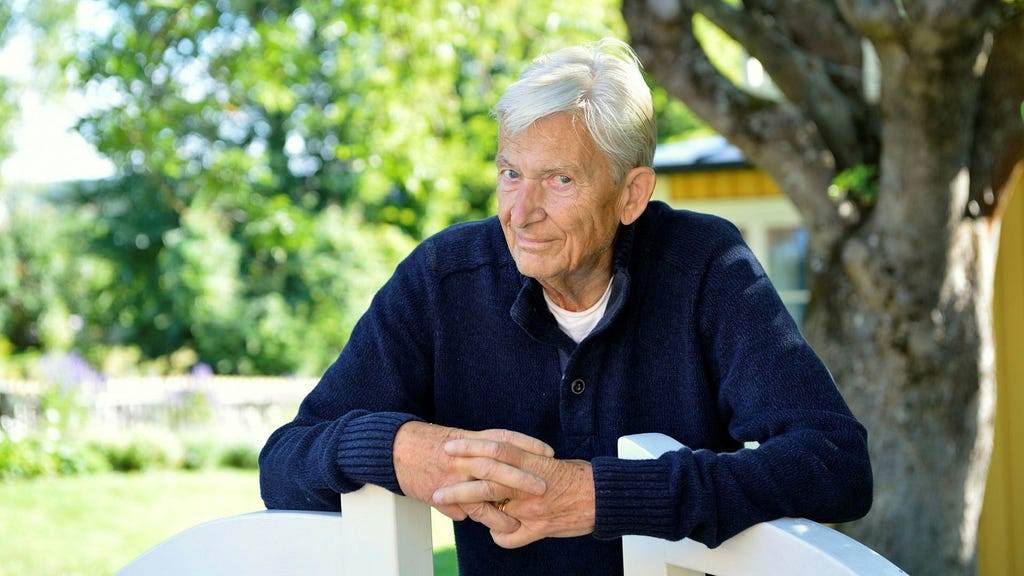P.O. Enquist’s ”Allvarligt talat,” a compilation of his responses to listeners’ questions on a radio program of the same name, offers a refreshing antidote to the increasingly toxic and polarized public discourse of our time. Enquist’s thoughtful and nuanced approach to even the most challenging questions, delivered with his characteristic good humor and wisdom, stands in stark contrast to the pervasive tendency to distort and misinterpret, as exemplified by the absurd attribution of a tragic aircraft collision to ”woke ideology.” His genuine empathy and willingness to engage with diverse perspectives offer a potent reminder of the importance of reasoned dialogue and genuine human connection in an era marked by superficiality and animosity.
A personal encounter with Enquist on a train journey years ago further illuminates the profound impact of his empathetic listening. During a period of grief and emotional turmoil following his father’s death, the author found solace in Enquist’s understanding and shared experiences. Enquist, who had openly addressed his own struggles with alcohol, inquired directly about the author’s father’s final years and offered insights into the complexities of addiction, the defensive mechanisms employed by those struggling with substance abuse, and the persistent power of familial love. This conversation provided a sense of closure and understanding that had been elusive, allowing the author to reconcile with unresolved feelings and find a measure of peace. The author’s father, also a writer, shared a professional connection with Enquist, although they were not close friends. This shared background further enhanced the resonance of the encounter.
Enquist’s compassionate approach, evident in his personal interactions, is also clearly reflected in his responses to the radio listeners in ”Allvarligt talat.” His frank and empathetic response to a listener named Erika, who confessed to waking up with anxiety every morning, exemplifies his ability to validate and normalize difficult emotions. Acknowledging the validity of Erika’s experience, Enquist encourages her to explore the underlying causes of her anxiety rather than dismissing or minimizing her feelings. He paints a vivid picture of the ”wolf hour,” the early morning period when anxieties and fears can seem overwhelming, comparing it to a camera filter distorting reality with negativity. He then offers a hopeful perspective, suggesting that as the day progresses and life engages, this filter gradually dissolves, revealing the richness and complexity of everyday experiences.
This ability to connect with the listener’s emotional landscape is a hallmark of Enquist’s communication style. He doesn’t shy away from the difficult realities of human experience, but instead offers a framework for understanding and navigating these challenges. His words resonate with a deep understanding of human fragility and resilience, offering solace and reassurance in the face of adversity. This approach, rooted in empathy and genuine human connection, is increasingly rare in contemporary public discourse, which often prioritizes superficiality, sensationalism, and ideological posturing.
The author contrasts Enquist’s compassionate approach with the current climate of hostility and distrust, highlighting the alarming tendency to interpret even the most mundane interactions through a lens of suspicion and animosity. This polarized environment, fueled by social media and a 24-hour news cycle, often discourages genuine dialogue and fosters a climate of fear and resentment. The author questions whether basic human empathy is becoming an endangered trait, expressing concern that this fundamental aspect of human interaction could be eroded by the pervasive negativity and mistrust that permeate contemporary society.
However, the author also finds hope in the enduring presence of individuals who embody empathy and compassion. Citing the example of Bishop Mariann Budde’s willingness to engage in dialogue with those in power, the author affirms the continued existence of individuals committed to bridging divides and fostering understanding. These individuals, often unsung heroes in a world consumed by conflict and division, represent a powerful counterforce to the forces of cynicism and despair. Their actions serve as a testament to the resilience of the human spirit and the enduring power of empathy to transcend even the most deeply entrenched differences. The author concludes by reflecting on the profound shift in societal norms since Enquist’s passing, lamenting the fact that simple acts of human connection and dialogue can now be perceived as acts of defiance in an increasingly polarized world.














